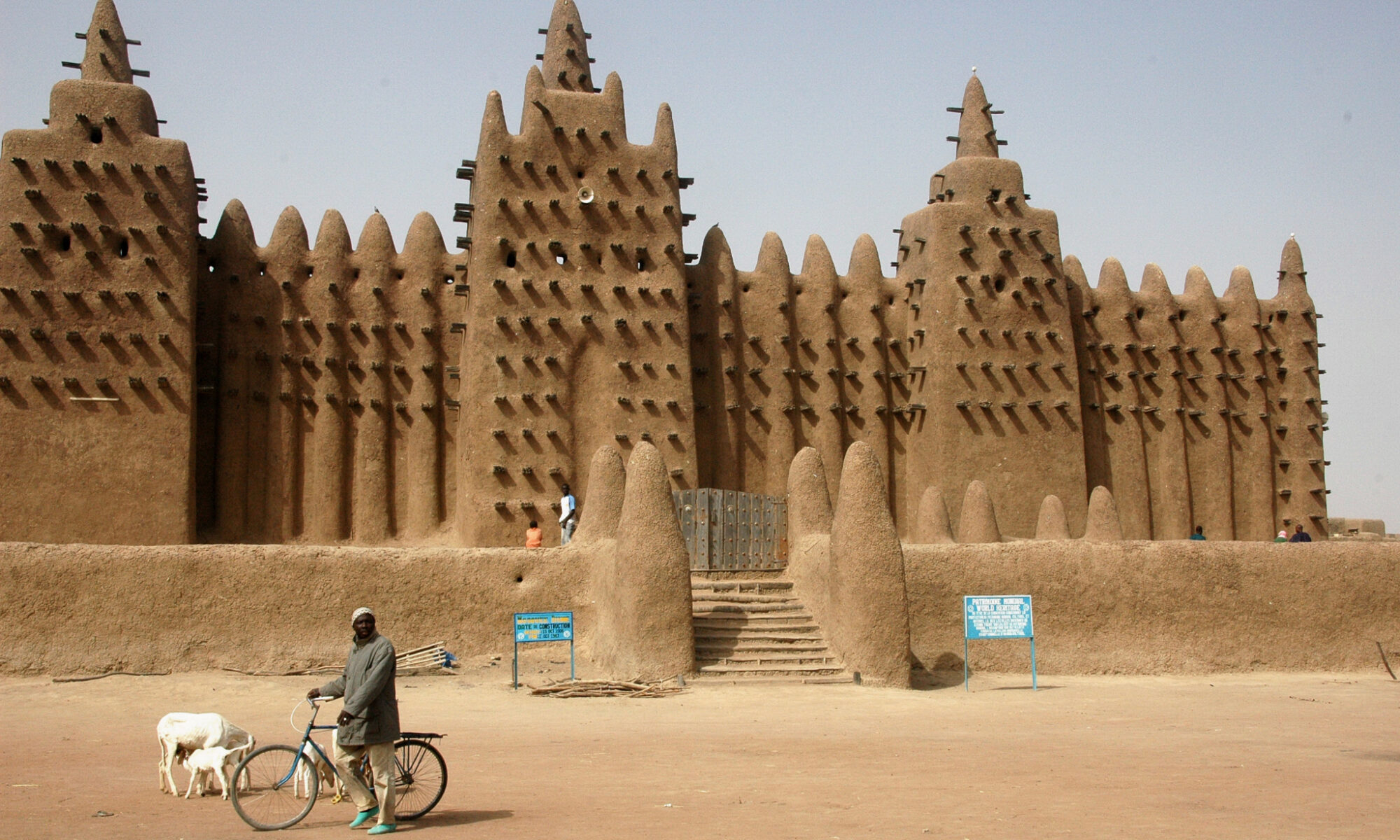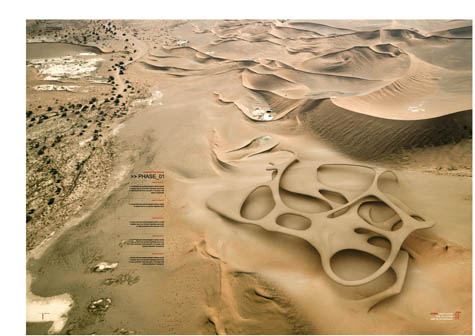
Dune Anti-Desertification Architecture investigates adaptive (as opposed to mitigatory) strategies leading to the creation of a climate-conscious
architecture that responds to the extreme environments of tomorrow’s globally-warmed world. Highly speculative yet buildable, the scheme aims to find innovative solutions to combat desertification in the Sahel region of Africa, where sand dunes are currently moving southward at a breathtaking
pace of around 600m per year, ruining the land and making it impossible for the inhabitants of this area to make a living or even stay in their homes. The forced migration of desertification refugees is perhaps more threatening in Nigeria than anywhere else. With a population of over 140 million people, Nigeria is the most populous country in Africa, with serious desertification issues throughout its northern states. It was Nigeria’s former president, Olusegun Obasanjo, who initiated the anti-desertification Green Wall Sahara initiative in 2005. This pan-African scheme seeks to plant a shelterbelt across the continent, from Mauritania in the west to Djibouti in the east, in an attempt to stop the dunes from migrating. The trees are being planted right now.
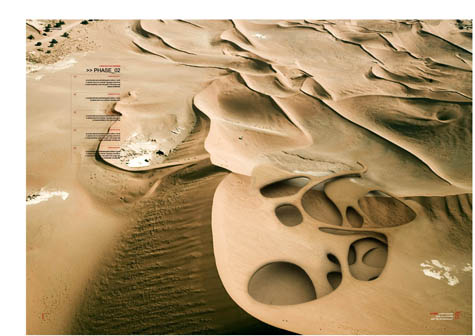
An architectural response to this campaign would be to go beyond the mere planting of a mitigatory shelterbelt. Habitable spaces can be created in close proximity to the trees. By cutting through the sand dunes and digging down to find water and shade, an artificial oasis can be formed underground.
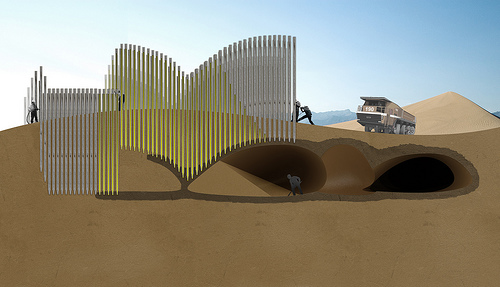
The sand is solidified using bacillus pasteurii, a microorganism with which professor Jason DeJong has turned sand into sandstone in a mere 1,400 minutes. This technology of organically cementing networks of sand dunes into habitable barriers that stop the desert from spreading has never been proposed before, but on hearing about this project, the professor was enthusiastic: “I do think the application you are talking about is possible”. I’m proposing anti-desertifi cation structures made out of the desert itself, sand-stopping devices made of sand: a poetic proposal that simultaneously works in a sustainable way with local materials and assets.
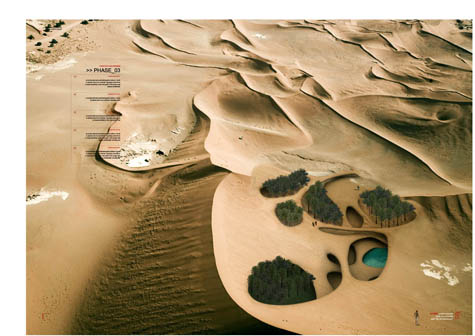
Special emphasis has been put on finding a solution that is high-tech in result but low-tech in application and construction, with the economical scenario being hard to pin down as this method is virgin territory. It is recognized that poor people are highly vulnerable to the effects of weather, as drought can cause famine while good rains can cause drops in crop prices. The architecture presented here could form a stable base from which to fight back against both effects.
Read more [ BLDGBLOG | Holcim Foundation ]
